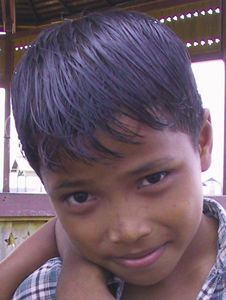 Most Sula people live on the island of Sula, while some of them live on Mangole Island and in other parts of the Sula archipelago. Most of these islands are in the province of North Maluku.
Most Sula people live on the island of Sula, while some of them live on Mangole Island and in other parts of the Sula archipelago. Most of these islands are in the province of North Maluku.
The Sula language has three dialects. Fasei is spoken in the southern part of Fasei Island. Falahu is spoken by the people in the villages of Falahu and Bega on the island of Sulabesi. It is also spoken in some communities on the island of Mangole. Fangudu is spoken in the rest of Sulabesi and on the eastern and western ends of the island of Mangole. The Sula language is part of a larger linguistic group called the Sula which includes Kadai, Taliabu, and Mangole.
In the past, the Sula archipelago was forcibly controlled by the Tidore Sultanate, and Sulabesi became a port of call for spice traders. Long before Europeans knew of these “Spice Islands,” tobacco from North Maluku and nutmeg from Central Maluku were being traded in other parts of Asia. When the Portuguese came in 1511, conflict raged in this area. Finally the Dutch won this conflict and gained enormous profit from the spice trade, until its decline at the end of the eighteenth century.
What are their lives like?
The Sula archipelago has a tropical climate with a rainfall of 200-400 centimeters (79-156 inches) per year. A large part of the tropical rainforest that used to cover most of the islands was felled when fields began to be cleared for farming. The Sula terrain also includes savannahs and mangrove beaches.
The Sula people make a living by hunting, fishing and gathering sago. Coconut trees are cultivated intensively and the primary export commodity is copra (dried coconut to be processed into coconut oil). Other goods include forest products, spices, and salt-water fish. Mangole Island has a plywood industry.
What are their beliefs?
The Sula people follow Islam. However they still maintain many traditional beliefs. They mix elements of traditional customs with Islam, such as saying ritual prayers at places they consider sacred – in order to receive healing or other needs. They also believe in guardian spirits which they believe can give assistance when called by a shaman.
What are their needs?
The people of Sula and the surrounding area need assistance to advance their community. To become more productive and efficient, the Sula community needs to be acquainted with appropriate technology.
The unavailability of both formal and informal education makes it difficult for the Sula to find work opportunities. The limited supply of electricity, clean water and health services also hinder development of the Sula community.
Leave a Reply